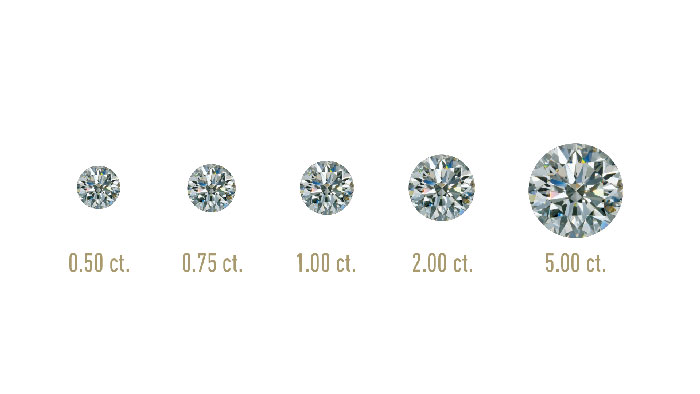No Products in the Cart

To put it simply, diamond carat weight measures how much a diamond weighs.
A metric “carat” is defined as 200 milligrams. Each carat is subdivided into 100 ‘points.’ This allows very precise measurements to the hundredth decimal place. A jeweler may describe the weight of a diamond below one carat by its ‘points’ alone. For instance, the jeweler may refer to a diamond that weighs 0.25 carats as a ‘twenty-five pointer.’ Diamond weights greater than one carat are expressed in carats and decimals. A 1.08 carat stone would be described as ‘one point oh eight carats.’
All else being equal, diamond price increases with diamond carat weight because larger diamonds are rarer and more desirable. However, two diamonds of equal carat weight can have very different values (and prices) depending on three other factors of the diamond 4Cs: Color, Clarity, and Cut.
While now you know what carat means, it’s also important to remember that a diamond’s value is determined using all of the 4Cs, and not just carat weight.
In order to understand what a diamond carat measures, it would help to know the origins of the modern carat system. Carat weight started with the carob seed, when early gem traders used the small, uniform seeds as counterweights in their balance scales. Today, the carat is the same milligram weight in every corner of the world.
Some weights are considered “magic sizes” – half carat, three-quarter carat, and carat. Visually, there’s little difference between a 0.99 carat diamond and one that weighs a full carat. But the price differences between the two can be significant.